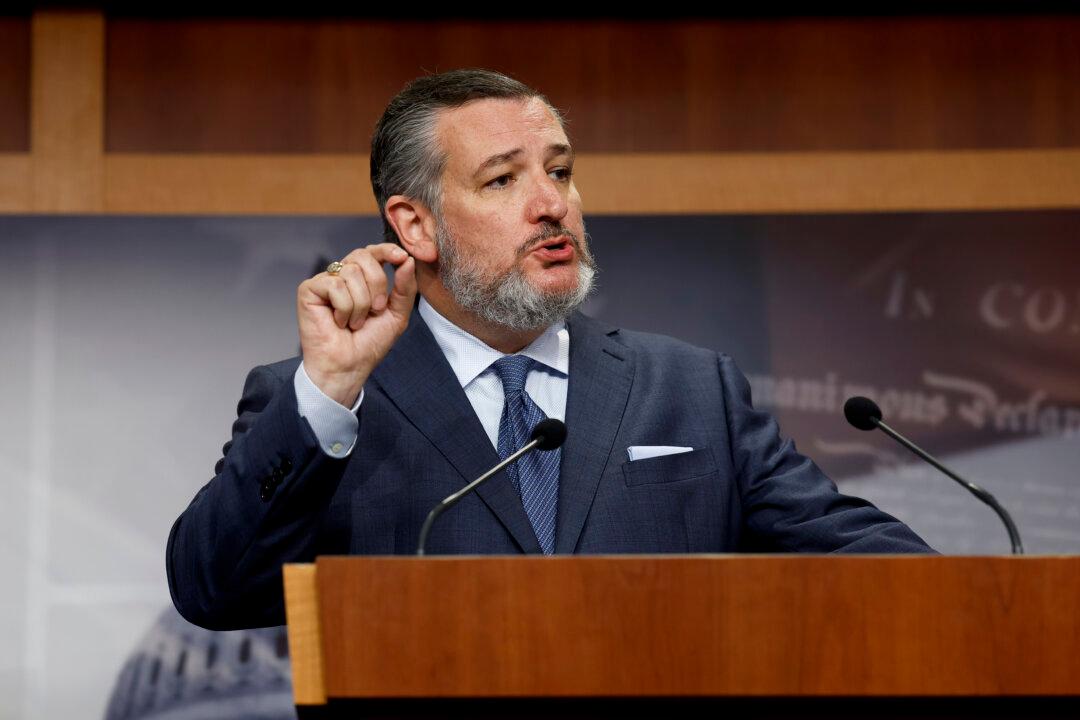Sen. Ted Cruz (R-Texas) has expressed hope that the U.S. Supreme Court will put an end to the “enormous abuse of power” aimed at former President Donald Trump after it agreed to review whether he is immune from prosecution in the Department of Justice’s (DOJ) federal criminal case, which relates to his efforts to challenge the 2020 election results.
Mr. Cruz made the comments in an interview on NewsNation’s “Elizabeth Vargas Reports” on Feb. 28. “I have to say, I’m glad the Supreme Court is taking the case. I have to say what we’ve seen in the past year—about the targeting from the left, the targeting from Democrat prosecutors of Donald Trump—has been an enormous abuse of power,” the lawmaker said.




